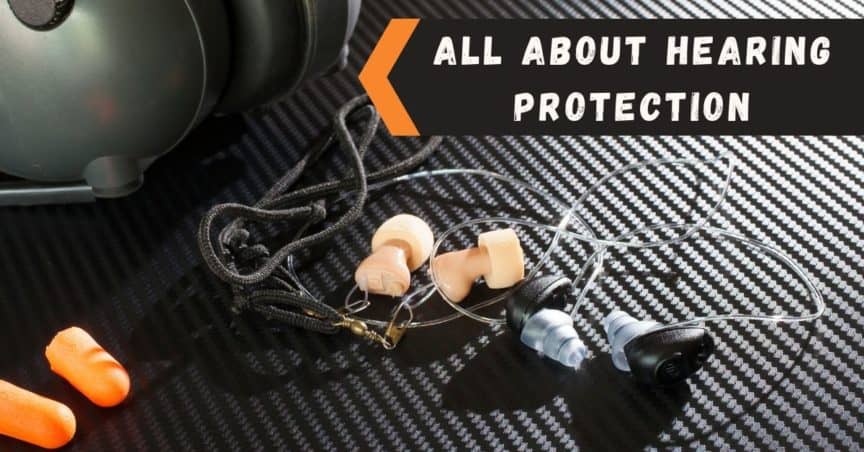We are constantly surrounded by noise: alarm clocks, kitchen appliances, traffic, music, conversations etc. Typically, the kind of noise we experience on a regular basis is not particularly dangerous. However, there are levels of noise that can be harmful to our hearing. Absorbing loud noise can cause hearing loss which nearly 1 in 8 people navigate on a daily basis. It is important to be aware of the noise in the various environments you move through and ways that you can protect your hearing!
Noise-Induced Hearing Loss
There are several factors that can contribute to the development of hearing loss including: existing medical conditions, genetic history, and environmental exposure to loud noise. Noise induced hearing loss results from absorbing dangerous levels of noise that damage the inner ear. The inner ear consists of nerve pathways as well as the cochlea, a labyrinth like structure that is filled with thousands of tiny hair cells and fluid. The outer ear absorbs soundwaves from the environment which travel through the middle ear and activates the cochlea. The movement of the hair cells and fluid helps translate soundwaves into electrical signals that the brain can then process and make meaning of. This is how we are able to understand what we hear.
The louder the sound, the greater the vibrations that cause the hair cells and fluid to move. Healthy hair cells need time to rest and recover from all of this activity but exposure to loud noise, intensifies and overworks these hair cells. This can cause them to lose sensitivity, temporarily or permanently. You may be familiar with the impact of this: when leaving a concert or loud event, we usually cannot hear as well. Sounds seem muffled and you may be speaking loudly. This is because the hair cells have been overworked and need time to recover. Our hearing usually comes back shortly after leaving the loud event. But when someone is consistently absorbing loud noise, this can damage the hair cells and lead to permanent hearing loss.
How Loud is Too Loud
We absorb sound all day long so how loud is too loud? Sound is measured in units known as decibels (dB):
- 0dB: near complete silence
- 50dB: typical conversation
- 90dB: lawnmower
- 140dB: airplane taking off
- 170 dB: fireworks
Noise above 85dB is potentially harmful to our hearing. There are various ways that we are exposed to sound at 85dB and more, a few common examples include the following:
- Attending events: such as concerts, or sports games in arenas which can range from 110dB to 130dB
- Listening to music: depending on the volume settings, music in headphones can easily reach 90 dB
- Operating machinery: working in construction, doing housework, etc. A simple hand drill is around 100dB
- Work environments: there are many different types of workplaces with loud background noise (airports, music venue, arena, etc.)
Noise induced hearing loss is completely preventable. There are effective ways that you can reduce your risk of damaging your hearing.
Protecting Your Hearing Health
There are useful ways you can protect your ears from absorbing loud noise, mitigating your risk of hearing loss. Effective ways to protect your hearing health include:
- Wear protective gear: there are several types of protective wear for your ears, examples include earmuffs, earplugs, and headphones. This type of gear serves as a protective barrier between loud noise and your ears.
- Noise cancelling headphones: this is a wonderful feature that is worth investing in. Noise cancelling headphones are designed to reduce background noise which prevents you from having to increase the volume in louder settings.
- Take listening breaks: your ears need time to rest so taking listening breaks is good practice. Our ears and brain can become exhausted from constantly absorbing and processing stimuli. So, taking listening breaks is a useful way to allow yourself to rest and rejuvenate.
- Minimize volume: maintaining normal volume on your devices (TV, phone, headphones, speaker etc.) is an effective way to limit the amount of loud noise you are exposed to. If you are unsure of the volume level, you can always download an app to measure the noise!
By being aware of the level of noise you are surrounded by and taking safety measures, you can significantly reduce your risk of causing damage. Protecting your hearing health is important to sustaining your overall health and well-being! Contact us today to learn more about healthy hearing practices and to schedule a consultation.

